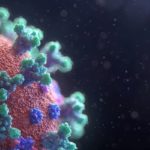1. SARS-CoV-2 infection-acquired immunity waned after 1 year, but immune protection remained high beyond 1 year in those boosted with vaccination.
Evidence Rating Level: 2 (Good)
Study Rundown: The effectiveness and duration of immune protection following SARS-CoV-2 vaccination or infection remains contested and pertinent to ongoing vaccination strategies. In this prospective study named the SARS-CoV-2 Immunity and Reinfection Evaluation (SIREN) study, British asymptomatic health care workers who underwent routine polymerase chain reaction (PCR) testing were assessed for PCR-confirmed infection status stratified for vaccination or previous infection divided into several follow-up periods over 10 months. The study found that in previously uninfected participants vaccinated with two doses of the BNT162b2 vaccine (Pfizer-BioNTech), vaccine effectiveness within the first two months was 85%, but decreased to 51% after about 6 months. Protection acquired from the previous infection was 86%, but then decreased to 69% after 1 year. However, combined protection of participants who were previously infected and subsequently received BNT162b2 vaccination had immunity of over 90% which remained throughout the 1 year follow-up period. Altogether, this study supports that while SARS-CoV-2 vaccines provide high levels of protection against infection across short-term time frames, the protection wanes considerably after 6 months. However, participants who were previously infected and then receive vaccination maintain a high level of immune protection beyond 1 year of follow-up. The largest limitation of this study was the lack of data on infection exposures among the study population which could influence the rate of infection among the different study groups.
Click to read the study in NEJM
Relevant Reading: Waning Immune Humoral Response to BNT162b2 Covid-19 Vaccine over 6 Months
In-Depth [prospective cohort]: The SARS-CoV-2 Immunity and Reinfection Evaluation (SIREN) study is a multicenter, prospective cohort study that aimed to assess the rate of primary SARS-CoV-2 infection in a previously uninfected cohort or reinfection in a previously infected cohort following vaccination. 35,768 British health care workers who regularly underwent polymerase chain reaction (PCR) testing for SARS-CoV-2 infection were followed over approximately 1 year for SARS-CoV-2 infection with 26,280 assigned to the previously-uninfected cohort and 9,488 to the previously infected cohort. 94.9% of the entire cohort had received two doses of vaccine against SARS-CoV-2 of either BNT162b2 (Pfizer-BioNTech) or ChAdOx1 nCoV-19 (AstraZeneca). Cox regression models were used for statistical analysis of differences in time to SARS-CoV-2 infection amongst different group comparisons. Throughout the study, 2747 primary infection events and 210 re-infection events were observed. With respect to vaccine effectiveness, participants receiving BNT162b2 with a long interval between doses had an 85% reduction in risk of infection (95% Confidence Interval [CI], 72-92) within two months of vaccination but decreased to 51% (95% CI, 22-69) after a median of 201 days. Similar reductions in vaccine effectiveness were observed for participants receiving BNT162b2 with a short interval between doses and those receiving the ChAdOx1 nCOV-19 vaccine. Conversely, participants who were previously infected had an 86% lower risk (95% CI, 38-84) of reinfection compared to the risk of primary infection in unvaccinated participants without previous infection. This protection waned to 69% after a 1 year follow-up period. Participants who were previously infected and received two doses of BNT162b2 vaccination demonstrated over 90% protection against SARS-CoV-2 infection, which remained durable through the 1 year follow-up period. Overall, the study supports that combined protection from the previous infection and two doses of vaccination confer the highest and most durable protection against SARS-CoV-2 infection. The results of this study should inform future vaccination campaign strategies to mitigate the waning protection provided by vaccines throughout the SARS-CoV-2 pandemic.
Image: PD
©2022 2 Minute Medicine, Inc. All rights reserved. No works may be reproduced without expressed written consent from 2 Minute Medicine, Inc. Inquire about licensing here. No article should be construed as medical advice and is not intended as such by the authors or by 2 Minute Medicine, Inc.


